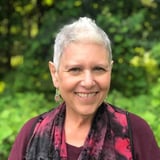Summary
Making design simple in siloed and dated governmental organization with a baggage of tradition and slumped public reception is not an easy task. This talk presents a case study transforming a large government-regulated gambling monopoly from the product-driven world of the past into the emergent and rapidly shifting markets where the customer is placed front and center. How to refresh an organization without causing more obstacles? Organizing for continuous learning and allowing natural competence development can be achieved with reviewing the foundations of the business model and design organization. This talk presents solutions from the presented case study.
Key Insights
-
•
A dated company vision hinders alignment and adaptability in fast-changing industries like gambling.
-
•
Co-creating vision statements with the entire design org and basing them on customer interviews improves focus.
-
•
Regulation to prevent addictive gaming can directly conflict with traditional design goals like engagement.
-
•
Organizational resilience relies heavily on fulfilling psychological needs: autonomy, competence, and relatedness.
-
•
Excessive meetings without clear goals decrease productivity; workshops and agendas improve focus and speed.
-
•
Trust enables transparency and information sharing, which are key to scaling design efficiency.
-
•
Remote design workshops succeed more by managing participant focus and agenda than by the tools themselves.
-
•
Low-threshold design methods and toolkits accelerate learning, confidence, and adoption across diverse teams.
-
•
Continuous customer dialogue beyond surveys drives better prioritization and product responsibility.
-
•
Flexible budgeting and continuous projects reduce knowledge loss and improve adaptability over time.
Notable Quotes
"Many obstacles we faced came from inside the organization, not just external factors."
"The red buttons are forbidden to reduce excessive engagement — that runs counter to typical design goals."
"Nobody really knew what we should be reaching for because the vision was outdated."
"People were pushed but had no idea what was expected from them — adaptability was lacking."
"Transparency can be a master source of efficiency when people are trusted to share."
"Every meeting should have a predefined agenda, at least if no clear goal is determined."
"It was not the remote tools that were the challenge, but getting people to focus."
"Organizations are made of people — resilience is an outcome of a successfully organized group."
"Autonomy means having confidence to make choices and affect ways of working."
"Low-threshold peer designing exponentially develops confidence very quickly."
Or choose a question:
















More Videos

"I recommend asking about user needs rather than disability, like whether someone needs captions or larger fonts."
Kate KalcevichIntegrating Accessibility in DesignOps
September 23, 2024

"Overlaying cultural dialogue on user journey maps uncovers insightful tensions and opportunities."
Neil BarrieWidening the Aperture: The Case for Taking a Broader Lens to the Dialogue between Products and Culture
March 25, 2024

"Experience mapping brought a new understanding that helped us draw former extremists into peace efforts."
Jim KalbachPeace is waged with sticky notes: Mapping Real-World Experiences
June 14, 2018

"My career has looked more like a game of snakes and ladders than a straight ladder."
Rebecca BuckMission: Keep Talent in Research Roles!
March 10, 2021

"I want my collaboration tool to be like the Nest thermostat of my workday, knowing when I’m heads down and when I’m open to communication."
Abby Covert Tomer SharonPanel: Collaboration Tools
November 6, 2017

"Accessible experiences are better experiences for everyone whether you are a person with a disability or not."
Sam ProulxOnline Shopping: Designing an Accessible Experience
March 28, 2023

"In procurement, throwing things over the fence just doesn’t work; collaboration builds trust."
Melissa Eggleston Maya Israni Florence Kasule Owen Seely Andrea SchneiderPractical People Skills for Building Trust on Teams and with Partners
December 9, 2021

"Our purpose is to enrich people’s lives with technology, focusing on how to use—not just what to buy."
Sara Asche Anderson Jamie KaspszakNot Your Ordinary Re-Brand: Design's Path to Driving Customer Obsession at Best Buy
January 8, 2024

"People will forget what you said, people will forget what you did, but people will never forget how you made them feel."
Tutti TaygerlyMake Space to Lead
June 12, 2021
















